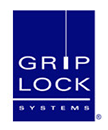Industry News
Evaluating The Impact Of Warning Lights On Roadway Worker Safety
July 31, 2018
Flashing warning lights are a common line of defense intended to help protect construction workers, police officers, firefighters, emergency medical service personnel, and others who work along the roadway from oncoming traffic. These lights need to capture drivers' attention yet not be so bright that they distract drivers from seeing workers in and along the roadway.
In collaboration with Pennsylvania State University, the Lighting Research Center (LRC) at Rensselaer Polytechnic Institute conducted a field study to measure drivers' ability to detect simulated workers adjacent to vehicles equipped with flashing yellow warning beacons varying in peak intensity (25 cd to 700 cd) and flash frequency (1 Hz or 4 Hz), while driving at night. Crash reports reveal that workers do not always wear reflective vests when working along the roadway, thus the study was conducted with and without safety vests on the simulated workers.
The results of the study were recently published in the journal Accident Analysis & Prevention. The paper, “Investigation of flashing and intensity characteristics for vehicle-mounted warning beacons” is authored by Kristin Kersavage, Nicholas Skinner, John Bullough, Philip Garvey, Eric Donnell, and Mark Rea.
The research team found that there was no difference in detection distances between lights flashing at 1 Hz or those flashing at 4 Hz. Detection distances were shortest when the peak intensity of the warning beacons was greater than 150 cd. As expected, the simulated workers wearing safety vests were seen from furthest away where drivers would have the most time to respond, regardless of the warning beacon peak intensity.
The study results can be incorporated into performance standards for flashing warning beacons to ensure that they support worker safety, especially at night.
Funding for this study was provided by the National Institute for Occupational Safety and Health (NIOSH Grant # R01OH010165 to Mark Rea, LRC).









































